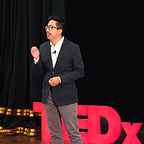How To Find Out If You’re Trapped In An Endless Game Development Cycle Of Doom
Developers should be developing games, this much is obvious. Problems arise, however, when that development never actually turns into something tangible and released to the public. Lots of newer developers get stuck trying to develop their games when they keep adding on and adding on, or keep fine tuning until they’re “perfect.” This is a good way to ruin your career, however, as building a portfolio of shipped game is absolutely crucial to your success and momentum in the game development industry. Here are some signs that you might be trapped in this endless development cycle.
First, if you’re developing things that are cool for you, the developer, and not the players, you’re going to end up in the cycle. All of those shiny features you’re adding don’t matter if players don’t see them or care about them. Because of this, you should be thinking about what the player will think of each feature or mechanic, and focus on improving the player’s experience before building things for your own sake.
Next, you need to be showing people your game. It’s understandable that it’s scary for others to judge your work, but if you’re not letting that happen you’ll never know if your game is good enough or not. You might be adding unnecessary features or modifying systems that were already perfect if you keep going without playtesting. Maybe your developer bias is hiding problems that any other person would immediately point out, or maybe it’s skewing your thoughts on how knowledgable your players will be when they first start playing. The point is, if you don’t show people your game you’ll eventually end up doing unnecessary work that’s stopping you from finishing development. Get feedback, early and often.
On a similar note, if you don’t have any unused, quality ideas, you’re definitely over-developing. Not every idea should be stuffed into every game; even if they’re wonderful on their own, having too many conflicting systems will just make a game complicated and water down the experience. It’s fine, and even encouraged to have a lot of these great ideas, but don’t try to fit them into your games if they aren’t absolutely perfect. Sometimes, even a perfectly fitting idea should stay out for the sake of keeping complexity down. After all, players play for the experience, not for the amount of widgets in your game.
Quite the opposite of overly-stuffing a game, if you are constantly shifting focus you’ll never get anything done. If you find a new idea for a game that you absolutely fall in love with while you’re developing another game, remember you have to stay dedicated and finish what you’re working on first. Save that idea for later, but don’t try to switch your development focus to it. If you do this once, this may turn into more than once. Soon enough, you’ll likely do it again and again — this may mean that you’ll never finish a game.
Lastly, if you are developing your games just for the sake of developing, you should probably shift into gear. Oftentimes indie developers have no pressures to release their games; there’s no publisher, no deadlines, no audience, etc. Because of this, developers will often just freely work on their games and they never really get anywhere. You need to develop from the ground up with the idea that you’re going to ship that game at some predetermined point in time. Even if you end up moving that date, setting this goal is a must. This doesn’t mean that you should sacrifice quality, but you can’t keep developing without releasing and getting feedback from real players.
Important Takeaways: Developers can sometimes fall in the trap of endlessly working on games without ever actually finishing them, so here are some signs that that could be happening to you. First, you need to think of the player’s perspective in development or you’ll just keep adding things that sound and look cool to you but never get the game to a point where it’s enjoyable to players. Next, if you aren’t showing people your game, you’ll never get the feedback you need to feel confident that it is “complete” and you’ll just keep doing unnecessary work. Similarly, if you are using every single idea you come up with, even if they’re all good ideas, you’ll deal with feature creep and never actually finish the game. On the contrary, if you are constantly shifting to different projects that are currently catching your fancy, you’ll only have a bunch of half finished games to your name. Stay dedicated to one project and ship it before you move on to your next projects. Don’t get stuck.
If you enjoyed reading this post, please like and share it to help others find it!
About The Author
Daniel Doan is the Co-Founder and CGO of Black Shell Media and the developer of SanctuaryRPG and Overture, among dozens of unfinished game prototypes. You can connect with him on Twitter, Facebook, LinkedIn and Instagram.
